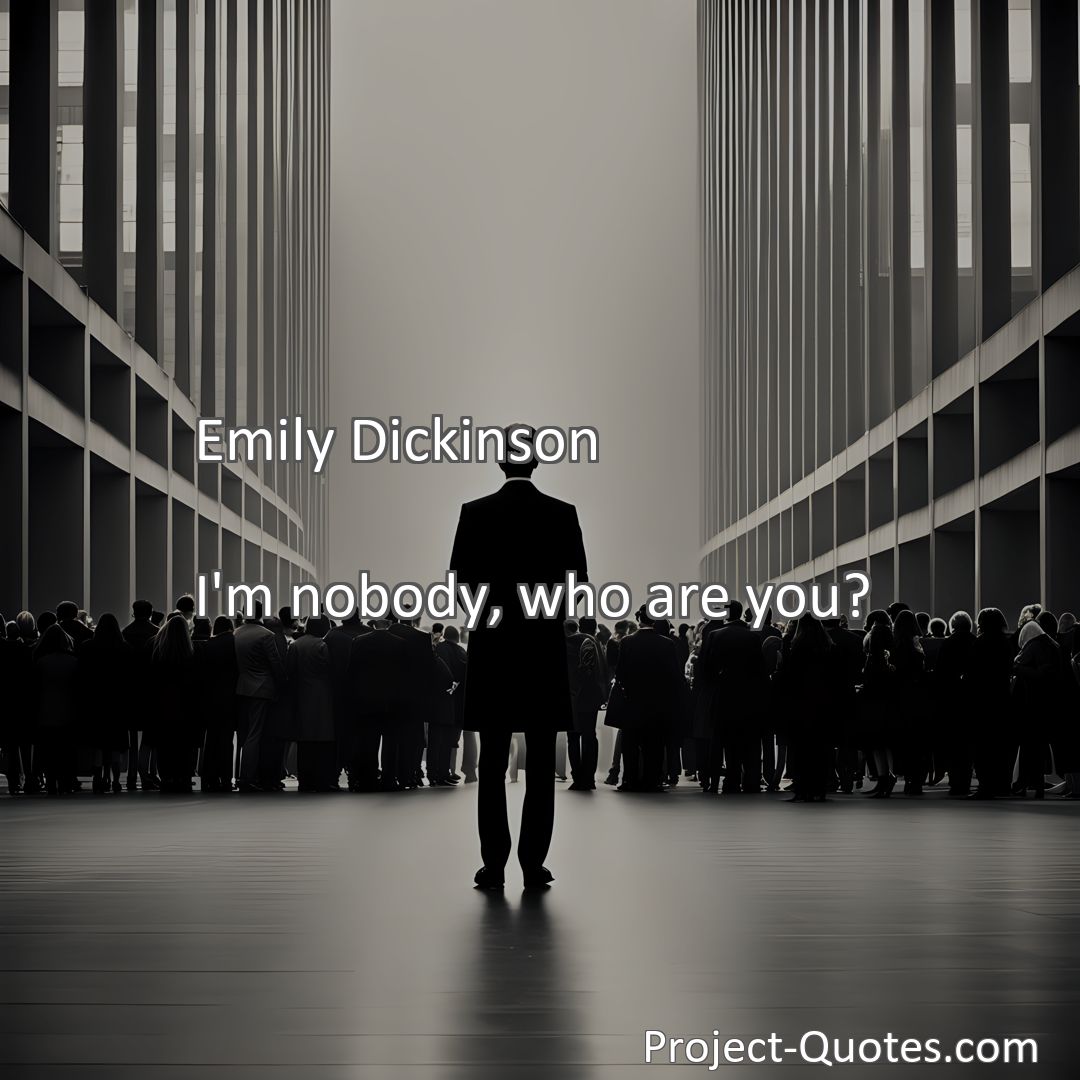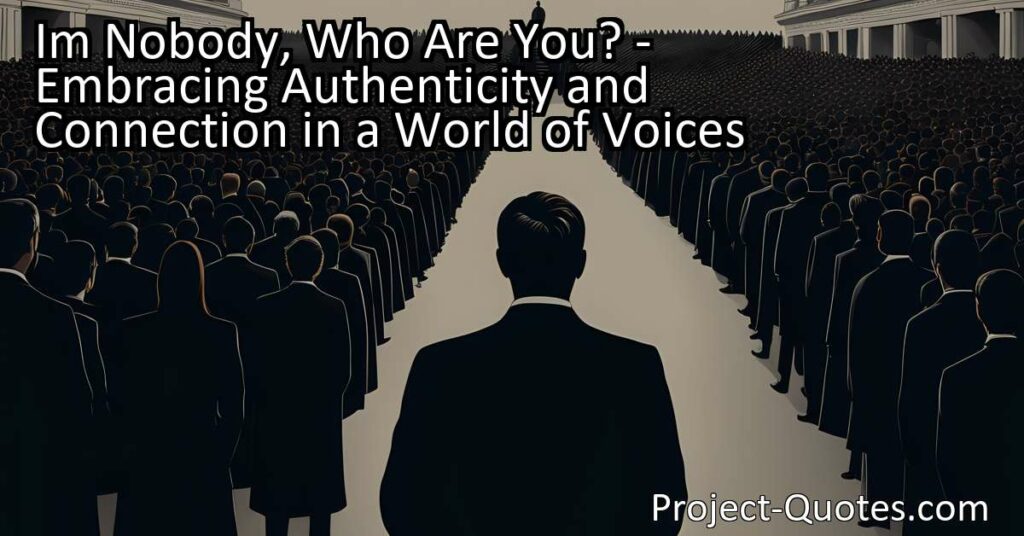I’m nobody, who are you?
Emily Dickinson
The simple words of Emily Dickinson’s poem, “I’m nobody, who are you?” speak volumes about feeling overlooked or underestimated. In a society filled with voices and expectations, these words invite us to explore our identities and desire for connection, reminding us that sometimes the most genuine and profound voices are those that go unnoticed. Let us embrace our “nobodys” and embark on a journey of self-discovery and authenticity.
Table of Contents
Meaning of Quote – I’m nobody, who are you?
Have you ever felt invisible? Like no one really sees or hears you? If so, you’re not alone. Emily Dickinson, a renowned American poet, posed an intriguing question in her poem: “I’m nobody, who are you?” These simple words speak volumes about feeling overlooked or underestimated, inviting us to explore the concept of identity and our place in the world.
In today’s fast-paced society, it’s easy to get lost in the sea of voices, opinions, and expectations. We often find ourselves striving for recognition, craving social validation, and showcasing our lives on various platforms. Dickinson’s poem, written in the 19th century, still resonates with us today because it captures a universal human experience the desire for connection and acknowledgement.
The poem’s opening line, “I’m nobody,” immediately captures our attention. It’s blunt, disarming, and unexpectedly relatable. Although Dickinson wrote in the first person, this “nobody” concept can be interpreted more broadly. It’s not about being invisible; it’s about feeling unnoticed, disregarded, or marginalized. It’s about questioning our significance in a world that sometimes seems to prioritize the loudest and most prominent voices.
But who are you? Dickinson seems to be inviting dialogue, seeking connection with someone who might also feel like they don’t quite fit into society’s mold. By addressing her potential reader, she encourages us to explore our own identities and discover our individuality. In this shared experience, she gently reminds us that we are not alone in our feelings of insignificance.
Dickinson’s choice of the word “nobody” is intriguing. While it might have negative connotations, she imbues it with a sense of liberation. Being a “nobody” can be seen as a form of rebellion against societal expectations and norms. It’s an opportunity to embrace authenticity and reject the pressure of conforming to others’ perceptions of who we should be.
In a world that often values popularity and fame, Dickinson’s poem challenges the idea that “somebodies” are inherently more important than “nobodies.” She invites us to consider the beauty and power in anonymity, reminding us that sometimes the most genuine, profound voices are those that go unnoticed by the masses.
Furthermore, Dickinson’s poem encourages self-reflection and introspection. By asking, “Who are you?” she prompts us to explore our own thoughts, emotions, and beliefs. Defining ourselves apart from societal expectations can be a powerful act of self-discovery and self-acceptance. In a society that often tries to mold us into specific roles or labels, embracing our uniqueness becomes an act of defiance and self-empowerment.
Additionally, the poem brings to light the importance of cultivating genuine connections with others. By inviting us to introduce ourselves and share our stories, Dickinson highlights the significance of community and understanding. She implies that in finding others who also feel like “nobodies,” we can create our own community of like-minded individuals who appreciate and understand each other’s worth.
In a time when social media can sometimes foster superficial connections, Dickinson’s poem serves as a reminder to seek meaningful relationships rooted in authenticity. By stripping away the facade and pretenses often associated with online platforms, we can find solace in connecting with others on a deep, soulful level.
Furthermore, Dickinson’s poem raises important questions about societal values and perceptions of success. In today’s society, being a “somebody” is often associated with external markers of success wealth, fame, or notoriety. By embracing her “nobody” identity, Dickinson challenges the notion that success is solely defined by societal standards. She invites us to reassess our own definitions of success and consider the intrinsic value of fulfilling personal passions, making meaningful contributions, and cultivating genuine relationships.
Ultimately, Emily Dickinson’s poem “I’m nobody, who are you?” prompts us to reflect on our place in the world and the significance of owning our identities. It invites us to embrace our “nobody” status, finding empowerment in being true to ourselves and creating connections with others who appreciate and cherish us as we are. So, let us all proudly declare, “I’m nobody, who are you?” and embark on our journey of self-discovery and authentic living.
I hope this quote inspired image brings you hope and peace. Share it with someone who needs it today!


